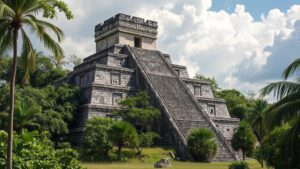Encounters with indigenous knowledge: how local communities guide tunnel discoveries.
Encounters with Indigenous Knowledge: How Local Communities Guide Tunnel Discoveries
Throughout history, indigenous communities have played a critical role in guiding archaeological and geological discoveries. Their intimate knowledge of local ecosystems, terrain, and historical narratives often leads to significant findings, particularly in the context of tunnel discoveries. This article delves into how these local communities influence tunnel exploration, highlighting notable examples from various parts of the world.
The Significance of Indigenous Knowledge
Indigenous knowledge refers to the understanding, skills, and philosophies developed by indigenous peoples through generations of interaction with their environment. This knowledge is not just a collection of facts; it is a holistic viewpoint that encompasses everything from local flora and fauna to geological formations and cultural practices.
Recent studies have shown that integrating indigenous knowledge with scientific methods can enhance exploration outcomes. For example, a report published by the World Bank in 2021 stated that projects incorporating indigenous insights were 30% more effective in resource management.
Case Studies of Indigenous Guidance in Tunnel Discoveries
Several prominent cases across the globe showcase the effectiveness of utilizing indigenous knowledge in tunneling projects:
- The Inca Trail, Peru: In 2019, archaeologists discovered significant archaeological tunnels linked to the Inca civilization. Local Quechua communities provided insights about ancient pathways, which led to the identification of key tunnel networks that had previously been overlooked.
- Gold Mines of Indigenous Australia: In Western Australia, local Aboriginal tribes were instrumental in locating tunnels used in ancient gold mining. r extensive knowledge of the areas geology–specifically its rock formations–guided researchers towards potential gold-rich areas.
- Subterranean Cities of the Xiongnu, Mongolia: The 2020 excavation of ancient tunnels attributed to the Xiongnu Empire was significantly advanced by the local nomadic herders oral histories. Tribes recalled past hunting grounds and burial sites that coincided with the tunnel systems, leading to fruitful excavations.
Recommendations for Integrating Indigenous Knowledge
To effectively harness indigenous knowledge in tunnel discovery projects, stakeholders can consider the following approaches:
- Establish partnerships with local communities from the outset of the project.
- Provide cultural sensitivity training for researchers to foster respect and understanding.
- Document and incorporate traditional ecological knowledge into the scientific framework.
- Share findings with local communities to enhance their involvement in the research process.
Challenges and Considerations
While the integration of indigenous knowledge presents many advantages, challenges do exist:
- Data Ownership: Many indigenous communities are cautious about sharing local knowledge due to concerns over exploitation and lack of recognition.
- Cultural Misinterpretation: Outsiders may misinterpret indigenous practices and perspectives, which can lead to erroneous conclusions.
Addressing these issues requires an ethical framework that prioritizes transparency and reciprocity. For example, the “Guidelines for the Ethical Conduct of Research in Indigenous Communities” by the Australian Institute of Aboriginal and Torres Strait Islander Studies is one such resource that fosters collaborative research approaches.
Conclusion: The Future of Tunnel Discoveries with Indigenous Knowledge
As the field of archaeological and geological research continues to evolve, the role of indigenous knowledge is becoming increasingly recognized. By valuing the insights of local communities, researchers can enhance their understanding of historical contexts and improve exploration efficacy.
To wrap up, the cooperation between indigenous communities and tunneling experts not only yields valuable discoveries but also honors the deep-rooted histories and cultures that these communities represent. By taking action now–fostering relationships, ensuring ethical practices, and integrating traditional knowledge–future tunnel discoveries can be significantly enriched and more sustainable.

